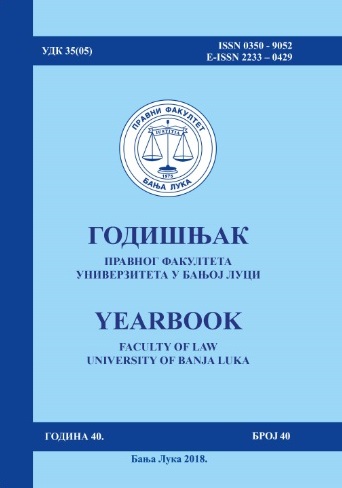PRACTICAL ASPECTS OF APPLYING DIFFERENT LEGAL TRADITIONS IN INTERNATIONAL ARBITRATIONS
DOI:
https://doi.org/10.7251/GOD1840133ZAbstract
There is no unified and comprehensive definition of arbitrationin legal science.3 Most of the positive regulations that regulate it, both in the
world and in our country (the Arbitration Act), omit the issue of its definition.
However, in science and in legal practice, arbitration is most often defined
through arbitration dispute, its elements, course and legal effects, and through
indicating differences between arbitration and judicial process, i.e., arbitration
and other alternative dispute resolution methods. It is concluded that arbitration
is an alternative to judicial settlement of a dispute, formed by consensus or
consent of the will of the parties involved, private, and that its decisions are
legally binding and final.4 5 This paperwork is trying to explain differences and
different way of conducting in case when participants in arbitration cases are
from different legal systems, especially differences between the most important
and the most spreader legal systems in the world, European, civil law system
and Anglo-Saxon law (common law). In the second and third chapter, attention
is paid to the procedural and material differences between the continental and
the common law arbitration procedures, especially in differences between the
investigative (continental legal system) and the common law principles of the
proceedings. In the fourth chapter, the difference between the starting of the
arbitration procedure was dealt with, while in chapter five, special attention
was paid to the presentation of evidence in the mentioned legal systems. The
witnesses and expert witnesses deal with the sixth and seventh chapters of the
paper, while the question of the privacy of the dispute is left behind for the last
chapter of the paper, followed by a conclusion.
Downloads
Published
2019-11-18
Issue
Section
Чланци
